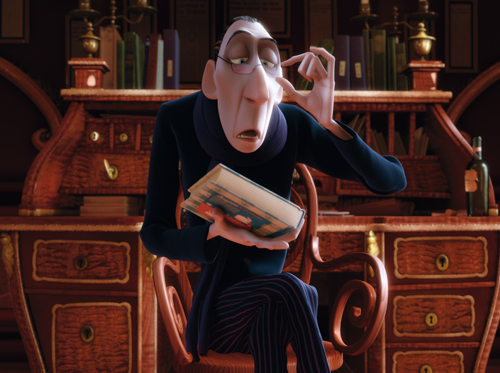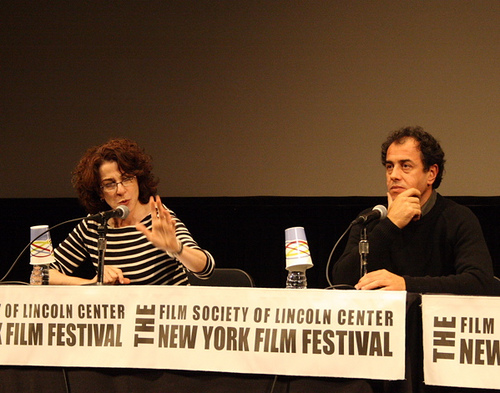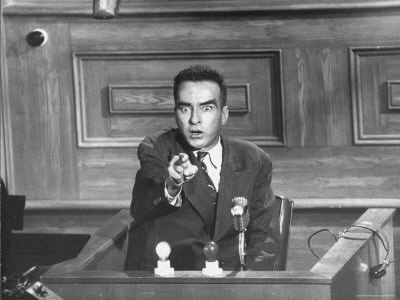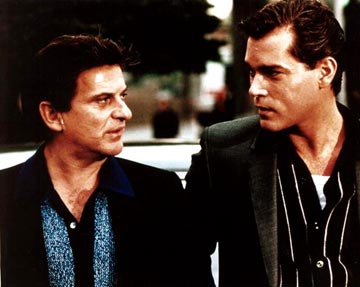
Why do I hate snotty criticism? It’s everywhere today, and there seems to be a spectral disgust permeating through our society where everything in the media is either judged with love or with hate, with little grey area and little tolerance for second choices. The bitching by the majority of angry critics (i.e., unhappy people) leaps out of proportion. Just today as I compose this, MSN Editors chose the worst 10 Best Picture Oscar winners ever choosing “Shakespeare in Love” as the absolute worst but with no real, insightful explanation. “No Country for Old Men” was also among the worst, only because they liked another nominee more. “The Hurt Locker” was chosen because it didn’t meet the epic standards of “Ben-Hur,” “The Bridge on the River Kwai” or “Casablanca.” Huh? “The Hurt Locker” was chosen best of 2009.
What is becoming apparent is that the Oscars are doing more widespread damage socially, by dividing people in demographic groups where there is always argument about what’s #1 but derision over anything #2-#10 and why they’re not good enough. I would like to believe we still live in a world where good is still good and that there’s enough good entertainment and superb art to go around.
 Why do people hate Gwyneth Paltrow? She seems like a fine woman to me, I wouldn’t mind being her friend. Just because “Shakespeare in Love” won Best Picture over “Saving Private Ryan” she is worthy of scorn? If my choices of either “Dark City” or “The Truman Show” had won Best Picture, would they too now be open to floods of media scorn?
Why do people hate Gwyneth Paltrow? She seems like a fine woman to me, I wouldn’t mind being her friend. Just because “Shakespeare in Love” won Best Picture over “Saving Private Ryan” she is worthy of scorn? If my choices of either “Dark City” or “The Truman Show” had won Best Picture, would they too now be open to floods of media scorn?
Ever notice the neverending bitchiness about who won the 2005 Oscar. Should it have been “Brokeback Mountain” over “Crash?” Or how about the other acclaimed nominee “Munich.” Recently Owen Gleiberman and Lisa Schwarzbaum penned “10 Best Picture Winners that Should Have Lost.” Even I think that article would be fun. But yes, the #1 jeer, according to Schwarzbaum, was “Brokeback Mountain” losing to “Crash.”
Schwarzbaum writes in this February 11, 2011 article: “What??? ‘Brokeback Mountain,’ that great, gorgeous, successful, boundary-breaking, conversation-starting romantic drama about the love between two men in the 20thcentury American West loses to ‘Crash,’ a tidily plotted chessboard game of a movie in which L.A. ‘types’ from all over Hollywood-approved socioeconomic map intersect. So wrong!”
This criticism would be fine if it weren’t for one hypocrisy. “Crash” received a Grade A from Schwarzbaum in her original May 2005 review. “[Paul] Haggis’ taut vignettes reveal ‘Crash’s bigger traffic pattern… there’s little to do but grip tight and prepare for major impact,” she writes. At the end of the year, Schwarzbaum names “Brokeback” her #2 film of the year. But she names “Crash” at #8. “Haggis has found an inspired metaphor with which to explore a modern-day L.A. snarl of race, class and culture. The interlocking stories he tells pile up with raw, almost sickening power… There’s something cleansing and optimistic in the way ‘Crash’ lays out the wreckage” (December 22, 2005).
Is there really that major a discrepancy between a #8 film of the year and a #2? One’s better than the other, but to scream Oscar outrage? What I despise essentially is the hypocrisy of Schwarzbaum taking swipes at a film that she revered and stood behind in the magazine, praising Haggis’ risk-taking and courageous artistry. Only to reverse her opinion in order to make herself appear as the lord presider of what is cinematic perfection. She must have believed that all readers must have forgotten of what she wrote five years earlier.

By the way, I would have chosen “The Three Burials of Melquiades Estrada,” the German film “Downfall” or “The Squid and the Whale” as the best film of 2005. I knew going into the Oscars that none would be nominated. Did I cry or wail out against the other nominees? No, I got over it.
We’re at a point where we’re ridiculing good films, really??? The only interesting gamut, I think, is to list the worst films ever nominated. I would select “Il Postino” (1995), “Peyton Place” (1957) and “Judgment at Nuremberg” (1961), which reduced WWII Holocaust atrocities into an all-star guest pageant with drama the equivalent of soap opera.

Bad is bad. Good films should not be downgraded to bad.
We can go on forever if we were to play the who should win / who should lose game. “How Green is my Valley” beat “Citizen Kane” in 1941. “How Green” is little more than OK, so you only need to know from me you probably don’t need to watch it.


“Ordinary People” beat “Raging Bull” for Best Picture in 1980. We all know that the Scorsese film is one of the all-time great cinematic achievements. I sensed its greatness upon my first viewing. Academy voters probably eventually understood that. But maybe Academy voters required time for “Raging Bull” to sink in, and by rushed award season they hadn’t seen it a second time or let its greatness settle in. “Ordinary People” is a very good movie. Scorsese’s “GoodFellas” of 1990 is one of the all-time great achievements as well, but you don’t need an Oscar handbook to know that. “Dances with Wolves” won, but why spend the energy hating it? You know the Academy, year by year, is selection driven by politics, right? So you can’t take any winner too seriously.
Every year, on average, I see about five extraordinary films, then another five that are excellent, then another ten that are very good, and then another bunch of other good ones that complied to pleasure with the time spent. See all the ten to fifteen great ones per year, I say, have luck with loving, liking, or at least appreciating with what you do see. Detach yourself from negative media that pigeonholes everything.
I like assembling ten best lists, but it should just be a best list. Any pervasive bitching on this site by readers in large numbers and I’ll stop numbering and just pick an absolute best, followed by titles in alphabetical order. At least that’s my pledge to myself. Because sometimes a #6 one day can change in my head and be a #4. And a #4 may not be a #1, but damn I don’t mind saying, it’s worth watching. Even if it’s a film that you end up not particularly liking, at least extract something from it instead of bitching.
And my feelings towards the Oscars. I am still interested in what the industry pool selects year to year. But maybe they should stop televising it (and televising other award shows, too) and just let the ceremony be a private affair for industry members and stars to enjoy.




